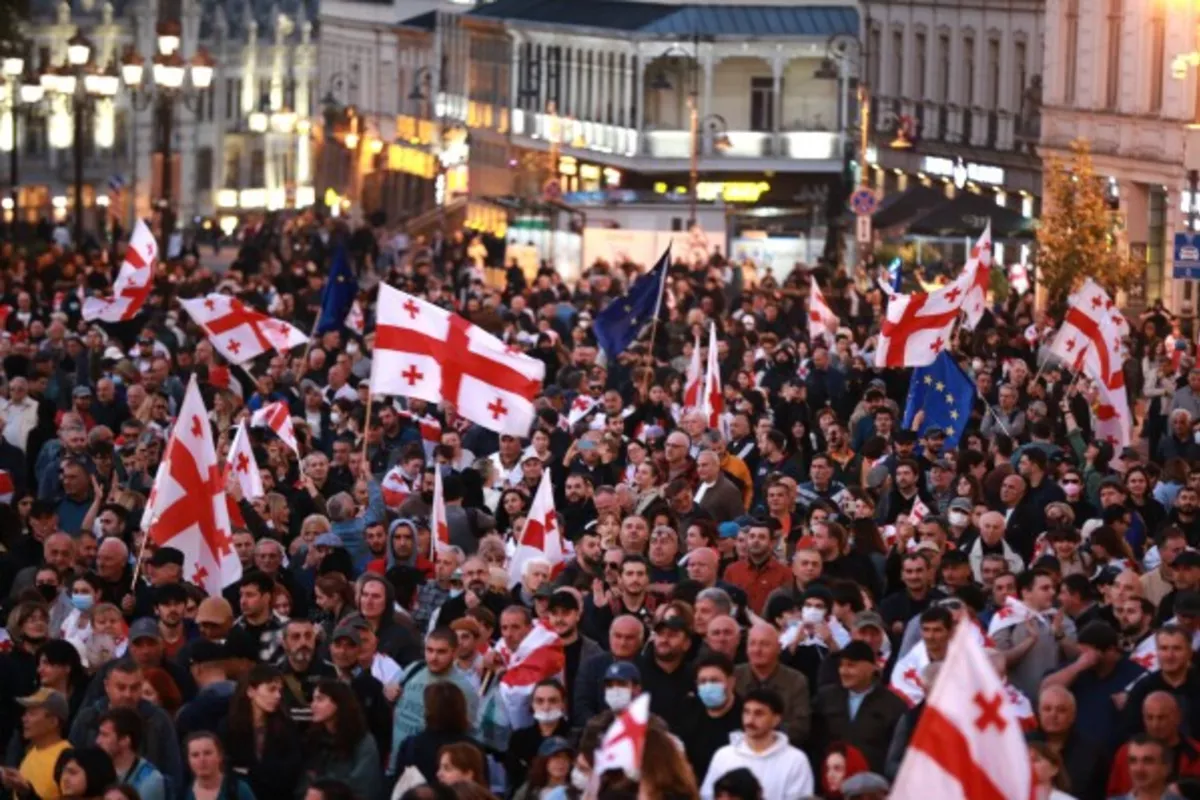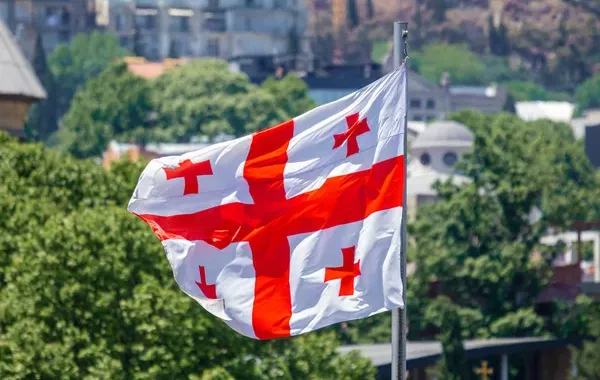
Photo credit: AP news
Although Georgia's "peaceful revolution" failed on October 4, Tbilisi State University sociologist Iago Kachkachishvili believes the failed uprising didn't extinguish the protest movement. In fact, it may have even revitalized it.
“October 4 discredited the idea of a revolutionary overthrow, but not the protest itself,” Kachkachishvili said in a televised interview with Interpressnews. “The protest line didn’t collapse. You could even say it reunited and revived,” The Caspian Post reports citing foreign media.
The sociologist, one of Georgia’s most prominent social analysts, said that the events of October 4, when opposition activists clashed with police near the presidential palace in Tbilisi, exposed deep public divisions, but also proved that large-scale dissent in the country is far from over.
“The government claimed the protests were over,” he said. “But October 4 showed that the protest is alive, real, and ready to reappear at any moment.”
He described the movement’s core as fundamentally peaceful. “People didn’t come out to take part in violent actions,” he explained. “This protest has always been peaceful in nature. Even though there was violence that day, its essence hasn’t changed.”
According to Kachkachishvili, the so-called “revolution” failed largely because of disorganization and unrealistic expectations among its leaders. “It was unprepared, unstructured and irrational, like firing a bullet into the air that hits you on the way down,” he said.
Still, he argued, the event didn’t destroy public faith in change. “People expected something new to happen, maybe a surprise,” he said. “But their hope for immediate transformation wasn’t that strong. That’s why the disappointment afterward isn’t as deep as some think.”
He also noted that speculation about cracks within the ruling Georgian Dream party may have confused some of the protest organizers. “Maybe they were promised that part of the security forces would switch sides,” he said. “That’s not impossible to imagine - there have long been rumors of internal divisions.”
Kachkachishvili rejected attempts to portray the detained organizers as criminals. “None of the organizing group members have criminal backgrounds,” he said. “Paata Burchuladze, for example, is one of the nation’s cultural treasures. What we saw was emotional, uncalculated action, not a coup plot.”
He said the government’s goal, to brand the entire protest movement as violent radicals, had failed. “People drew a clear line between peaceful protest and violent acts,” he said. “That’s why the authorities couldn’t criminalize the movement as a whole.”
Turning to the October 4 local elections, Kachkachishvili said the results confirmed widespread public disillusionment with the ballot box. “Most opposition voters no longer believe change can happen through elections,” he said. “They see voting as legitimizing Georgian Dream’s rule.”
He called the ruling party’s landslide victory in Tbilisi a “Pyrrhic victory.” “It’s not something to celebrate,” he said. “They won without the support or participation of the majority. That’s why the crisis of legitimacy will only deepen.”
Share on social media
